The Bible with Nicky and Pippa Gumbel, Classic Version, 2017Sample
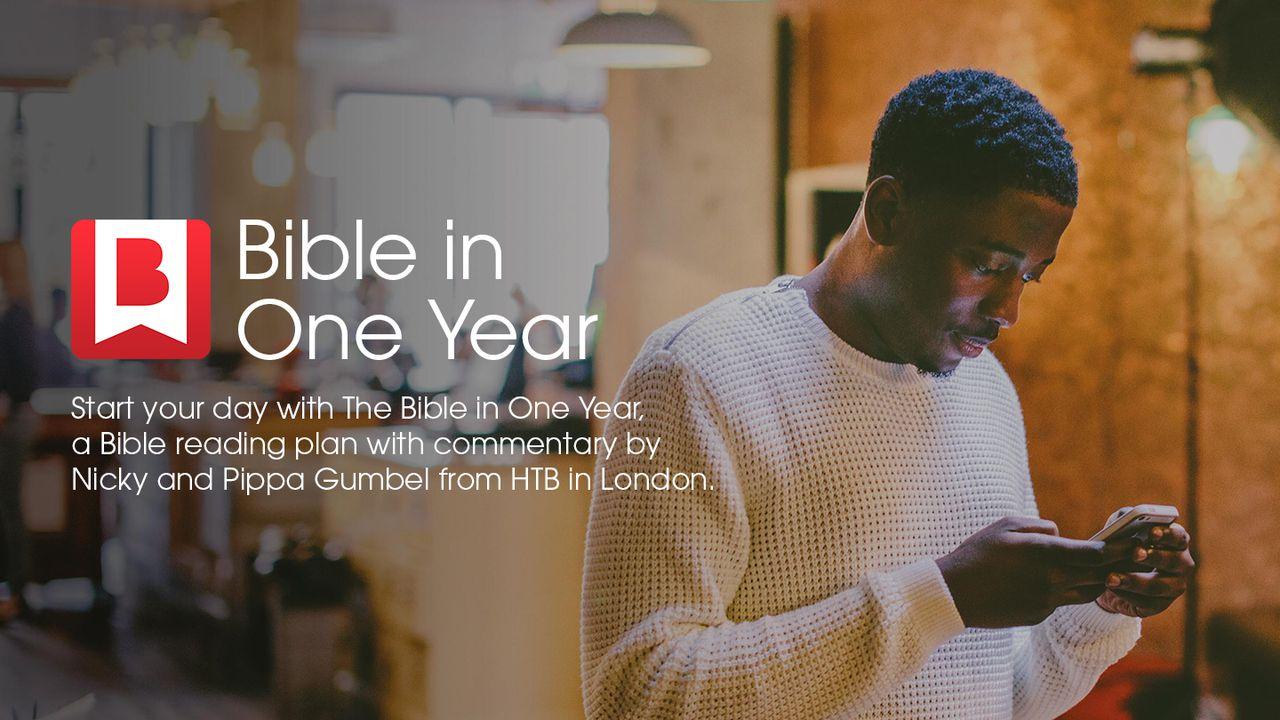
Your King
In 2010, Prince Charles came to visit HTB. It was a great honour to meet and host the heir to the throne, our future King of England.
The United Kingdom has been ruled by kings and queens for centuries, and our royal family are an important part of our national life. However, most modern monarchs only have limited power. By contrast, in the ancient world, kingship was much more all-encompassing, and the king was the final authority in all aspects of national affairs. In our Old Testament passage, we read of the reigns of the kings of Persia and Israel. But alongside this, each of our passages also points us to an even greater King – God.
The central theme in the teaching of Jesus was the kingdom of God. It not only refers to kingdom in a political or geographical sense, but it also conveys the notion of activity – the activity of ruling and reigning. The kingdom of God means ‘the rule and reign of God’.
Psalm 145:1–7
1. Worship your King
‘O my King!’ David exclaims, ‘I’ll bless your name into eternity’ (v.1, MSG).
David worships the King of the universe: ‘I lift you high in praise’ (v.1, MSG). He goes on to speak of the ‘splendour of your majesty’ (v.5a) and, ‘the glory of your kingdom’ (v.11), ‘the glorious splendour of your kingdom’ (v.12) and ‘your kingdom is an everlasting kingdom, and your dominion endures through all generations’ (v.13).
He worships his King every day, ‘every day I will praise you’ (v.2a), and says he is going to keep on worshipping ‘from now to eternity’ (v.2, MSG). He can ‘never be praised enough’ (v.3, MSG). David writes songs of worship: ‘I compose songs on your wonders’ (v.5, MSG).
Praise God for his power and rule, and for his ‘abundant goodness and… righteousness’ (v.7). The joy and exultation of the psalms stem from these twin truths that God is King and God is good. You can trust that he is in control – and that is good news!
Lord, you reign. You are King of the entire universe. You are worthy of my praise. Every day I will praise you.
Revelation 11:1–19
2. Hope in your King
Why is life such a struggle? Why do the innocent continue to suffer? Will it always be like this? Will our suffering ever come to an end? Is there any hope? What will the future look like?
We get a glimpse of what the future will be like when Jesus returns and the kingdom of the world is transformed into the Kingdom of our God and his Messiah who ‘will rule forever and ever!’ (v.15, MSG).
Jesus came proclaiming the kingdom of God. There is a sense in which it was ‘now’, and a sense in which it was ‘not yet’.
The present reality of the kingdom of God was shown by all that Jesus did in his ministry. God’s rule and reign is shown by the suppression of evil. The inauguration of the kingdom of God is seen by healing the sick, casting out demons and the forgiveness of sins.
On the other hand, the future aspect of the kingdom of God was made apparent by Jesus. He taught his disciples to pray, ‘your kingdom come’ (Matthew 6:10). He speaks of a harvest at ‘the end of the age’ (13:39). It appears that the kingdom of God will not be fully realised until Jesus returns.
Today’s passage from Revelation describes what will happen just before the kingdom of God comes in its fullness. The people of God are simultaneously persecuted and protected.
There will be two witnesses (Revelation 11:3). The Old Testament legal system always required at least two witnesses (Deuteronomy 19:15; John 8:17). Jesus always sent his witnesses out two by two.
The two witnesses here are probably Moses (who turned ‘the waters into blood’, Revelation 11:6) and Elijah (‘who shut up the sky’, v.6), ‘for these two prophets pricked the conscience of all the people on earth, made it impossible for them to enjoy their sins’ (v.10, MSG).
The two witnesses prophesied for 1,260 days (forty-two months or three-and-a-half years). This is probably symbolic of the period between the first and the second coming of Jesus.
Just before the end, they are killed by the beast. Their bodies lie in ‘the street of the great city’ (v.8) – that is Babylon or Rome – with the symbolic names of ‘Sodom and Egypt’, and ‘where also their Lord was crucified’ (v.8), that is Jerusalem.
For a very short time (‘three and a half days’, v.9), everyone gloats over their death (v.10). Then God raises them up: ‘the Living Spirit of God will enter them – they’re on their feet! – and all those gloating spectators will be scared to death’ (v.11, MSG), and they are taken to heaven as the time for the final judgment approaches (vv.12–13).
This is the moment that the seventh trumpet sounds. There is a three-fold sequence. First, the kingdom of God finally arrives in all its fullness (v.15). Second, the completed church (‘the twenty-four elders’, v.16) worships the King. Falling on their faces they worship God saying:
‘We thank you, O God, Sovereign-Strong,
WHO IS AND WHO WAS.
You took your great power
and took over – reigned!’ (v.17, MSG).
Third, the final judgment begins (v.18). The destroyers will be destroyed. God will reward his ‘prophets and saints’ – both ‘small and great’ will be rewarded.
As ever in Revelation, these scenes are symbolic. Moses and Elijah, the two witnesses to God, are figures of great courage and great power, who encounter great opposition and suffering before their final vindication.
This is the reality of what you are to expect in this period between the first and second comings of Jesus – the period in which you now live. There is a struggle between the kingdom of God and the kingdom of the ‘beast’. But it is a struggle in which you know the final outcome.
Your struggles will come to an end. The innocent will no longer suffer. There is great hope for the future. Jesus will return. He will reign forever and ever.
Lord, thank you that one day the kingdom of this world will become the kingdom of our Lord and of his Christ, and that you will reign forever and ever.
Ezra 4:6–5:17
3. Trust in your King
Have you ever been unjustly accused or criticised to your boss or to someone else in authority in a way that is very unfair?
Have you ever felt that the work of God was being hampered or even stopped by opposition, by a local council, by your boss at work or by others in authority?
Human leaders are powerful and they can use their power for good or evil. Artaxerxes was king of Persia (4:7). He received what could be described as one of those ‘dreaded letters’. It was a letter from those who oppose the work of God. It was full of flattery, half-truths and even lies.
The writers tried to make it sound as if they were being really helpful to the king: ‘the king should know…’ (vv.12–13). It describes Jerusalem as a rebellious and wicked city. Then, as now, money had a disproportionate power and the threat that ‘no more taxes, tribute or duty will be paid, and the royal revenues will suffer’ (v.13) was a powerful one, as was the suggestion that the king would be ‘dishonoured’ (v.14) by this rebellious and troublesome city. The result is that the work of rebuilding the temple and Jerusalem was brought to a standstill (v.24).
If you are on the receiving end of such hostility, it is encouraging to know that you are not the only one to receive letters of ‘accusation’ (v.6) from people who feel threatened (v.22) and who would like to stop the work (v.21). We know that in the end no one can succeed in such opposition if God is behind the plans. However, it can hold things up and temporarily bring the work to a standstill.
Ultimately these accusers do not succeed. Another king arose and we are told, ‘But God had his eye on the leaders’ (5:5, MSG).
A favourable report was sent to King Darius. It mentioned a great king of Israel who built and finished the temple (v.11) and the permission given by Cyrus king of Babylon (v.13).
Ultimately you can trust the sovereign rule of God: ‘the king’s heart is in the hand of the Lord; he directs it like a watercourse wherever he pleases’ (Proverbs 21:1). Don’t put your ultimate trust in human leaders; trust in God your King.
Human leaders come and go. Some are good. Some are evil. But the Lord is in ultimate control of history.
Lord, thank you that all true kingship points ultimately to your kingship. You are my God, my King. May I see your kingdom advance in my community, city and nation. Your kingdom come.
Pippa Adds
Psalm 145:4
‘One generation will commend your works to another; they will tell of your mighty acts.’
We have a responsibility to pass on the gospel to the next generation and to tell the stories of the amazing things that God has done in our lives.
About this Plan

Start your day with the Bible in One Year, a Bible reading app with commentary by Nicky and Pippa Gumbel. Nicky Gumbel is the Vicar of HTB in London and pioneer of Alpha. 'My favourite way to start the day.' - Bear Grylls, Adventurer
More
We would like to thank Nicky and Pippa Gumbel, HTB for providing this plan. For more information, please visit: https://www.bibleinoneyear.org/
Related Plans
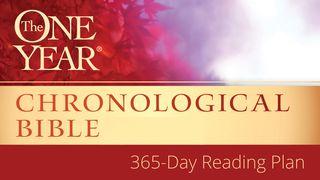
The One Year® Chronological Bible
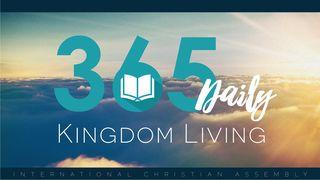
ICA - 365 Daily Kingdom Living

The Greatest Gift

C.S. Lewis And The Call To Create
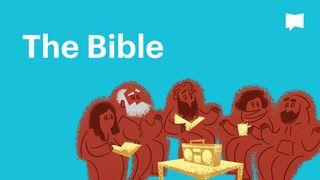
BibleProject | The Bible

Choosing Each Day: God or Self?

Discerning The Voice Of God
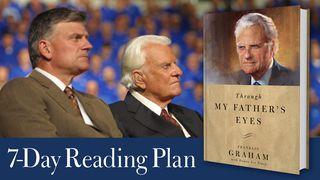
Through My Father's Eyes
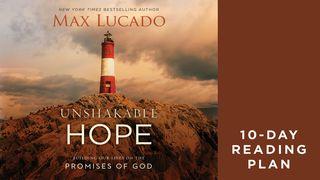
Unshakable Hope: Building Our Lives On The Promises Of God
